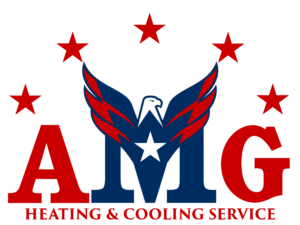Helpful Money Saving HVAC Tips
Here are some tips and suggestions you can use to save money on your utility bills, heating and air conditioning equipment, and service.
Set the thermostat
The most economical operation of your system comes from setting the thermostat properly. Set the thermostat at the highest summer setting or the lowest winter setting at which you are comfortable. Typical settings are 78 degrees for summer cooling and 70 degrees for winter heating. When cooling, your operating costs increase from 3% to 8% for each degree your thermostat is lowered. When heating, your operating costs increase for each degree your thermostat is raised.
Keep the air filter clean
The easiest way to ensure your system operates efficiently and economically is by keeping the air filter clean. There are several types of air filters and several possible locations for the air filter. Ask your Rheem Team dealer where your air filter is located and which type of filter to use.
Keep doors and windows closed
Close all doors and windows to the outside. This will reduce the heating load in winter and the cooling load in summer. Your system will operate more economically as a result.
Keep vents and grilles unobstructed
Arrange your furniture and drapes so that all output vents and intake grilles are free from obstruction. This will reduce the cooling and heating load on your system, providing more economical operation.
Avoid excessive use of exhaust fans
Excessive use of kitchen or bathroom exhaust fans will make your system work harder. This will increase energy consumption and costs. Keep costs in check by making wise use of exhaust fans.
Use the AUTO setting
Generally, it is best to set your indoor fan to AUTO position. This costs less and provides better humidity control in the summer. However, if you desire to operate your system with constant air circulation, ask for advice from your certified contractor.
Control direct sunlight
Let the sun in during winter. Keep the sun out during summer. In summer, direct sunlight increases the load on your cooling system. Use of window shades and awnings will reduce the amount of direct sunlight and lower the cooling load. In winter, direct sunlight reduces the load on your heating system. Open window shades and awnings to increase direct sunlight and lower the heating load.
Keep the condenser coil clean
The condenser coil (the unit outside your house) should be kept clean to ensure efficient operation. If the condenser coil becomes restricted by dirt, lint, paper, grass clippings, leaves, or other debris, system efficiency will deteriorate. Use a garden hose to keep the condenser coil clean.
Insulate air ducts
Be sure all air ducts are well-insulated. Ducts should also be sealed with a vapor barrier.
Keep an air tight house
Ensure maximum retention of heated or cooled air by adding insulation to outside walls and to the attic. Seal cracks and use storm doors and/or insulated doors to prevent air leaks.
Properly vent clothes dryers
Be sure your clothes dryer is vented to the outside. Also ensure that it is vented away from your outdoor unit.
Keep heat away from the thermostat
Make sure no heat-generating appliances are near your thermostat. These include lamps, TVs, stereo and computer equipment.
